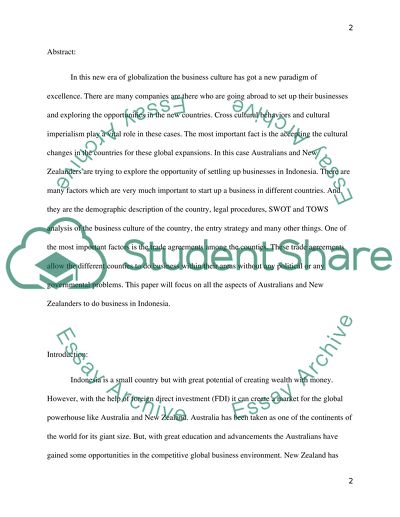Cite this document
(“Australia and New Zealand: doing business in Indonesia Essay”, n.d.)
Retrieved de https://studentshare.org/environmental-studies/1413030-australia-and-new-zealand-doing-business-in
Retrieved de https://studentshare.org/environmental-studies/1413030-australia-and-new-zealand-doing-business-in
(Australia and New Zealand: Doing Business in Indonesia Essay)
https://studentshare.org/environmental-studies/1413030-australia-and-new-zealand-doing-business-in.
https://studentshare.org/environmental-studies/1413030-australia-and-new-zealand-doing-business-in.
“Australia and New Zealand: Doing Business in Indonesia Essay”, n.d. https://studentshare.org/environmental-studies/1413030-australia-and-new-zealand-doing-business-in.


